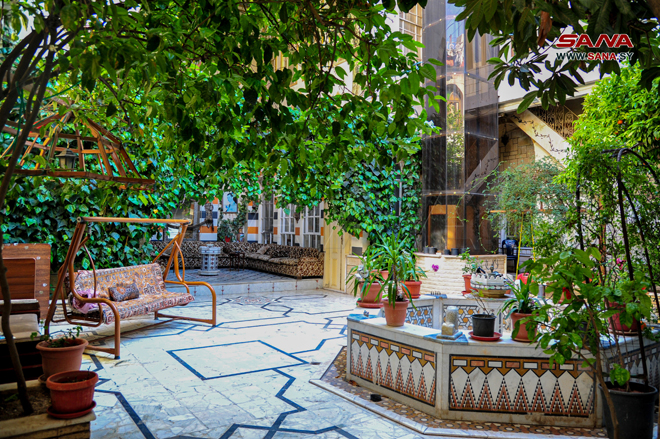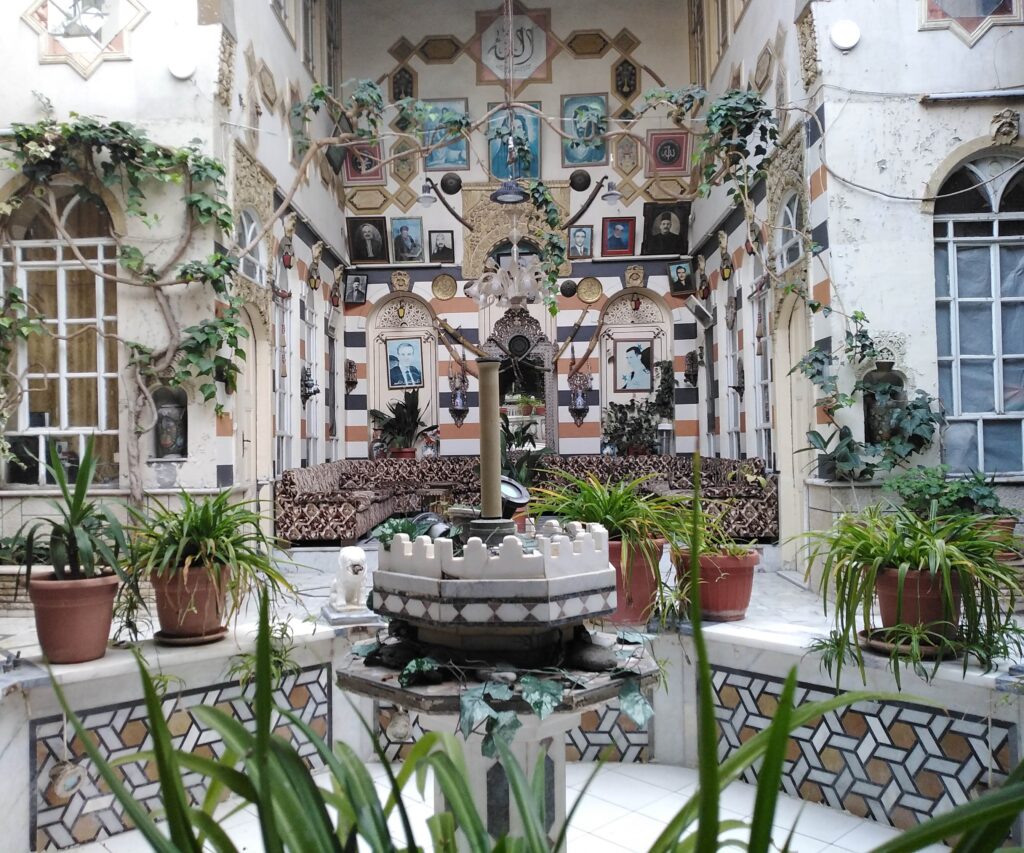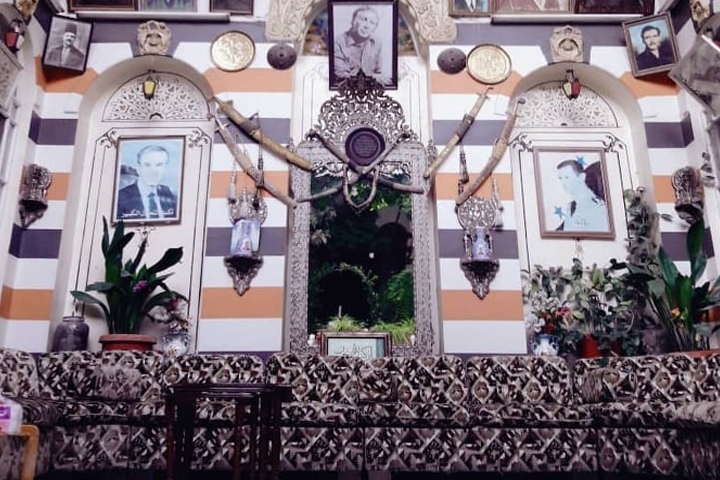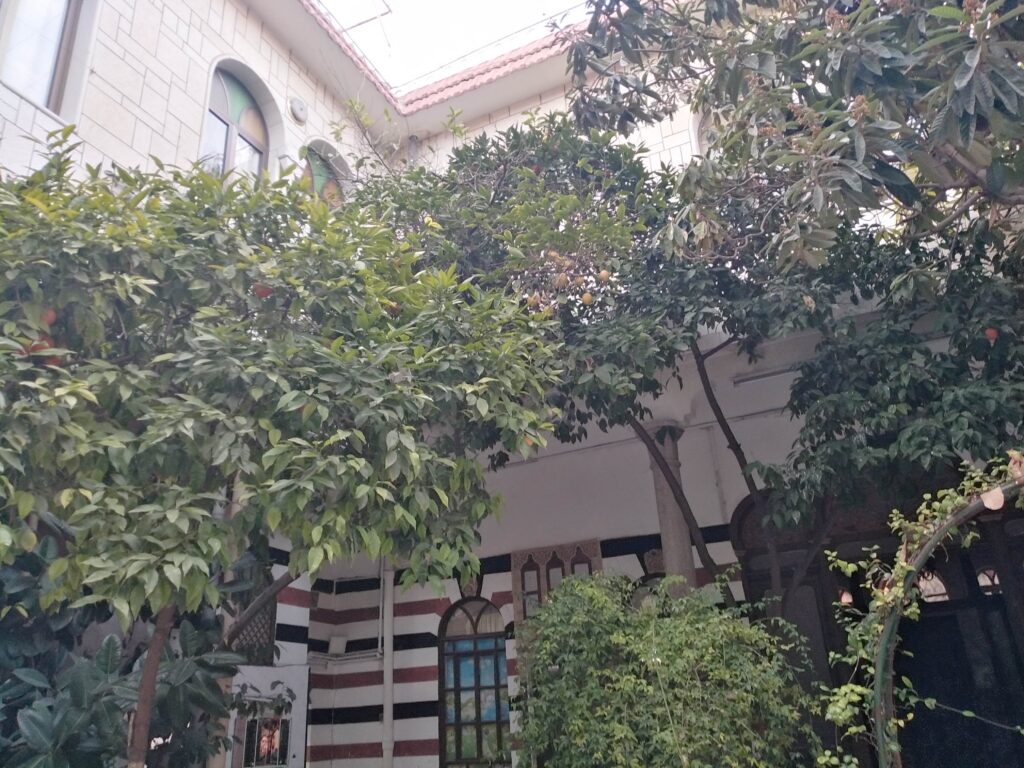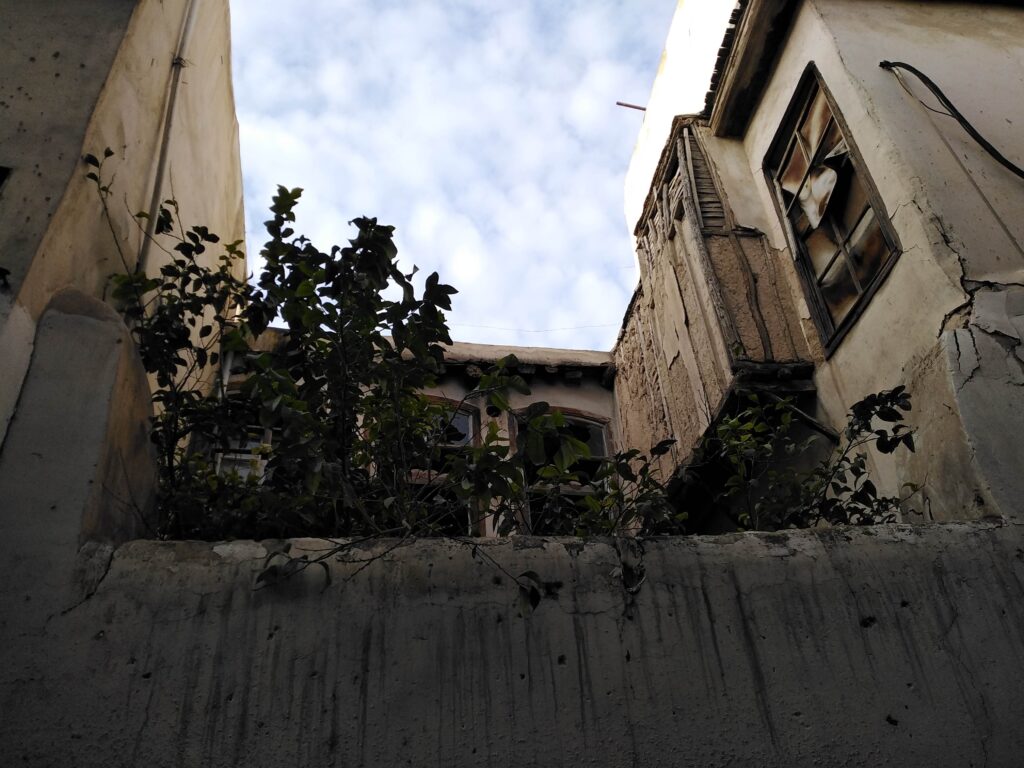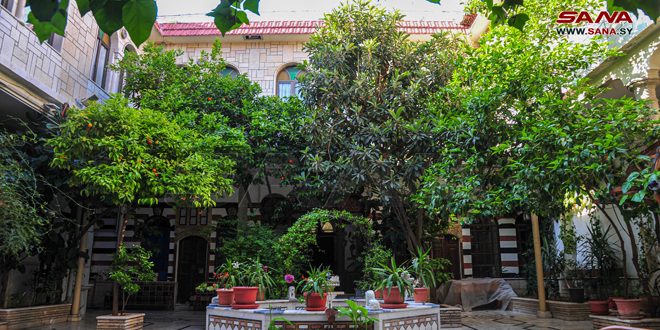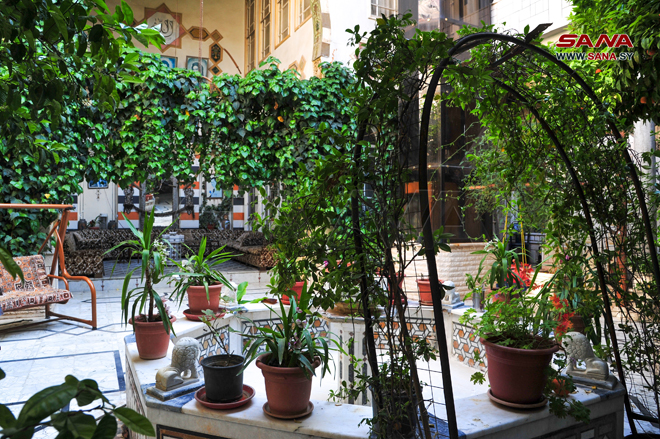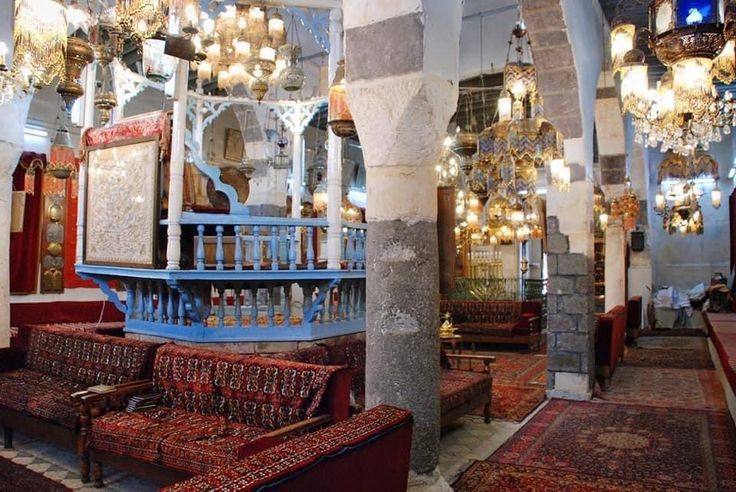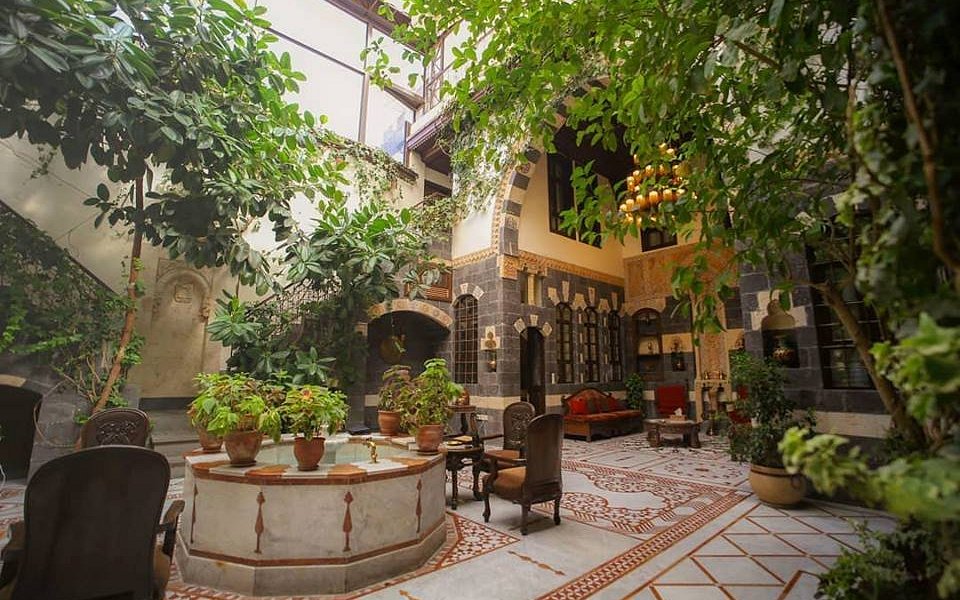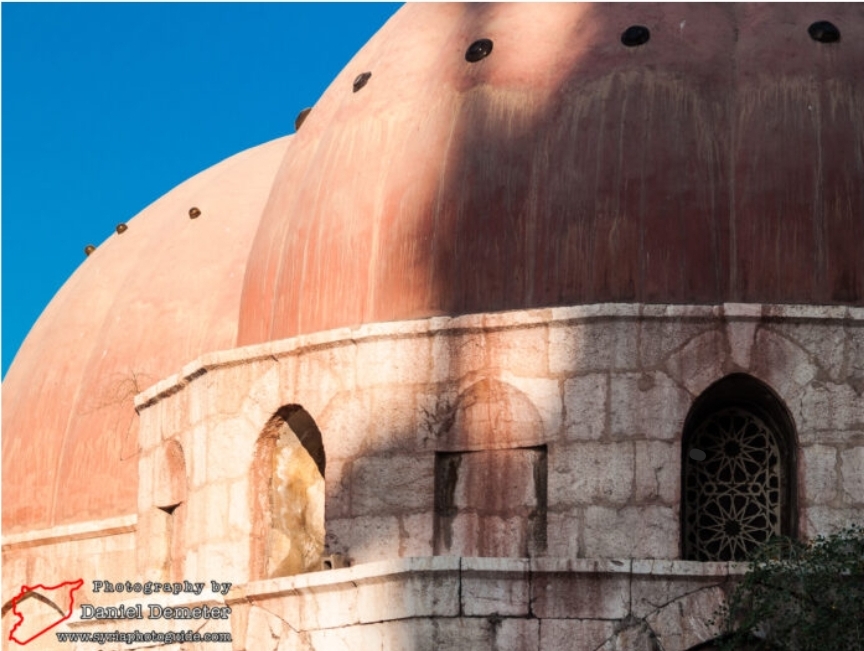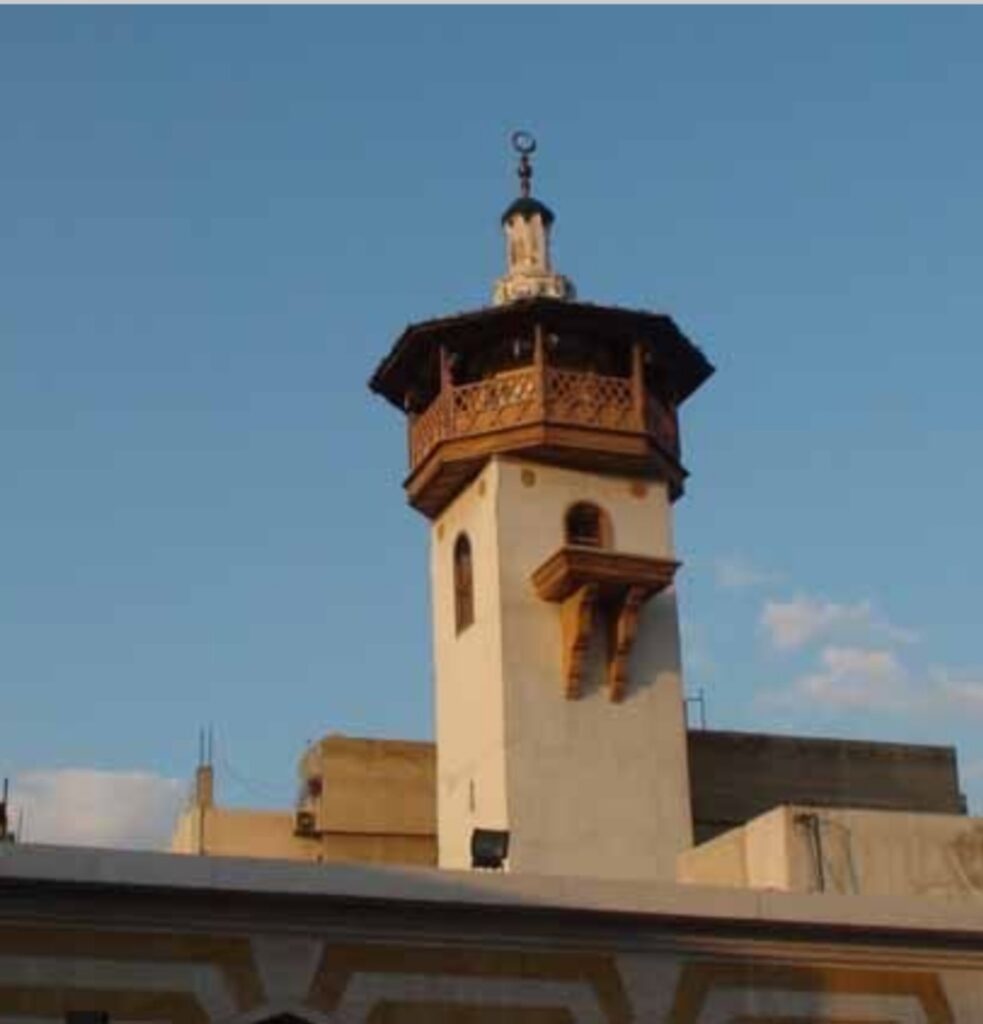In a narrow alley within the Damascus city walls lies the house where Nizar Qabbani was born in 1923.
This traditional Damascene home, built from ablaq stonework in the mid-19th century, centers around a marble fountain surrounded by bitter orange and jasmine trees—symbols that would later become enduring metaphors in his poetry. The halls preserve their original mosaic marble floors, stained glass windows, and brightly painted wooden “alaqlak” ceilings, which inspired his poem “Bread, Hashish, and Moon.”
In one of the rooms, the manuscript of his first poetry collection “The Brunette Told Me” (1944) was written. His sister Wissal’s piano and his handwritten annotations are still on display for visitors.
The visit begins at a low wooden door that leads to the guest corridor and opens into the courtyard, where a recording of Qabbani’s voice echoes،
“From this house, I left carrying the jasmine of Damascus to the world.”

